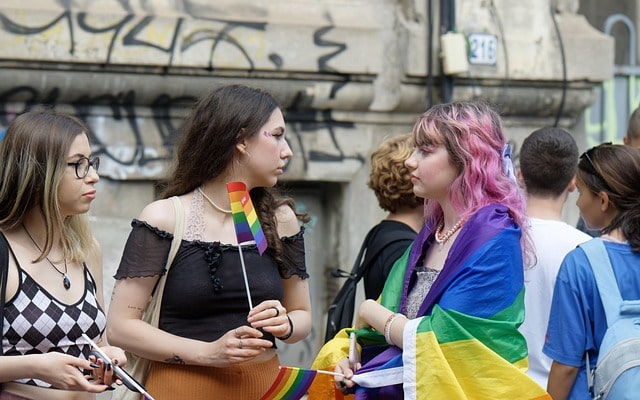
The LGBTQ+ community faces both internal and external challenges on its journey toward self-acceptance. Society has come a long way over the years and has made visible progress toward equality and visibility, but LGBTQ+ individuals often still face discrimination, harassment, or rejection.
These challenges often come from their own families, institutions, and even within themselves. These types of negative life experiences can lead to chronic stress, anxiety, shame, and a deep sense of not feeling like they belong.
This is where LGBTQ+ therapy comes in. LGBTQ+ affirmative therapy creates a safe and inclusive space where individuals can reconnect with their worth, explore their identities, and begin building their self-compassion. Let’s learn more about how LGBTQ+ therapy can be that safe space to help individuals build self-compassion.
Why Safe and Affirming Therapy Matters
Traditional therapy settings have not always been safe or inclusive for LGBTQ+ individuals. Many have experienced therapists who pathologized their identities, minimized their struggles, or lacked the cultural competence to address the unique realities they face day to day. This can make reaching out for help feel even more risky.
LGBTQ+ affirming therapy understands that gender identity and sexual orientation are natural expressions of human diversity. LGBTQ+ therapy doesn’t ask, “What’s wrong with you?” or assume that something needs to be. Affirming therapy instead focuses on the experiences you’ve had and how to help you thrive.

The Link Between Identity and Self-Compassion
Growing up in a world that questions your right to exist as you truly are can create deep internal wounds. Individuals can even start to internalize messages that make them feel broken, flawed, or inferior. These harmful beliefs can show up in several ways:
- Chronic anxiety or depression
- Difficulty setting boundaries or expressing needs
- Self-criticism or low self-esteem
- Shame around identity or relationships
Affirming therapy that celebrates LGBTQ+ identities helps to counter these negative messages. It helps individuals learn to separate their inner worth from societal bias.
How LGBTQ+ Therapy Builds Self-Compassion
Building self-compassion requires unlearning harmful messages and creating new, affirming narratives. LGBTQ+ affirmative therapists support this process in several ways.
Creating a Judgment-Free Zone
This form of therapy provides a truly safe space for individuals. It allows them to speak freely about their identities, experiences, and struggles without fear of being misunderstood or judged.
Naming and Healing Internalized Shame
Therapists help clients identify internalized homophobia, transphobia, or biphobia and work toward a better understanding of how these beliefs developed in response to external oppression. Naming this shame is the first step in healing it.
Normalizing Emotional Reactions
Therapy validates any type of emotional response. Even emotions that are viewed as negative, such as grief, anger, or fear, are seen as normal reactions to marginalization.
Rewriting the Narrative
Individuals can start to identify and reframe any negative self-perceptions or stories with the help of a therapist. These new beliefs are rooted in strength, resilience, and authenticity.
Reclaiming Joy and Celebration
LGBTQ+ therapy isn’t just about healing wounds; it’s about reclaiming joy. Therapy can be a space to explore pleasure, pride, and what it means to live fully as yourself.
Discovering Your Power
LGBTQ+ therapy is about finding power, voice, and visibility. It helps individuals develop the emotional tools to advocate for themselves, set boundaries, and nurture meaningful relationships. Most importantly, it empowers people to love themselves in a world that hasn’t always been loving toward them.
Where to Go from Here
If you’re struggling with self-compassion, it’s important to know you’re not alone. Working with an LGBTQ+ affirming therapist can be that safe space where you can finally breathe, speak your truth, and be celebrated for who you are. Reach out today to connect with a licensed mental health professional who understands the unique journey of LGBTQ+ individuals and can walk with you every step of the way.

